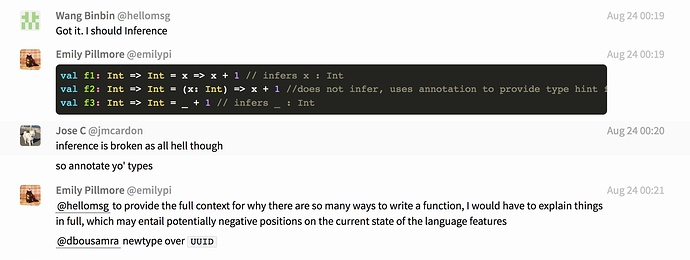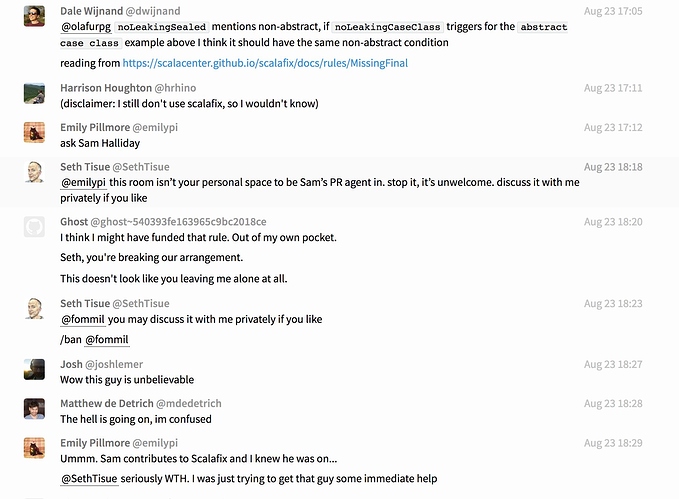Perhaps I can make a couple of suggestions for moderators. There are people who have managed to avoid Scala’s polarization and keep a cool head who I believe should be considered. The goal would be for responding in official Scala channels to feel less like dealing with the PR branch of a Fortune 500 who can’t deal with losing a cent off of criticism.
These people are already very busy - naturally, because being active in the Scala community without being very busy working on code is very difficult. However, I think that with some combination of them, we can have sufficient coverage.
Jason Zaugg, the compiler engineer, springs to mind. I don’t know of anyone who has ever had a negative interaction with him, ever.
Paolo Giarrusso, the PhD student, who is admittedly mostly involved in dotty but who has the necessary demeanor to defuse conflicts.
Jon Pretty, I mean, do I even need to explain? Everyone loves Jon Pretty.
Dale Wijnand, lovely guy, friendly to the bone.
Matthew de Detrich. We’ve had our disagreements in the past, but I believe he’s got exactly the right sort of personality to do this job.
To be specific about the things I want not to happen, and actually use real names: I don’t want another Simon Ochsenreither situation (https://groups.google.com/d/msg/scala-internals/r2GnzCFc3TY/x3PmIq4cAgAJ), where he was essentially bullied out of Scala when he was just trying to contribute. I don’t want to personally need to stay banned from scala/scala, just because I feel uncomfortable helping people there with Seth moderating (I’d link, but it’s been a long time. Anyone who was in that channel back then can vouch for my not being a disturbance in the slightest). I also really don’t want people (especially Lightbend-affiliated) to keep telling functional programmers to “use another language if you hate Scala so much.” Is it really so hard to understand why I stick with Scala? Or why Simon put what must’ve been days into improving the documentation? Because we care. We care about the technology beyond the money it can make us, we care enough to keep coming back. And is it any surprise that, if you care about something and can’t contribute to it anymore because of the people involved, you might get a little bitter? Is it really a surprise that there are some people who won’t just “go program in another language”?
None of these things need to stay the way they are. They can be fixed. Consider these candidates. I can try coming up with more if this isn’t enough.

